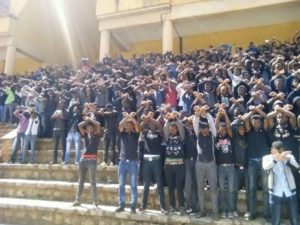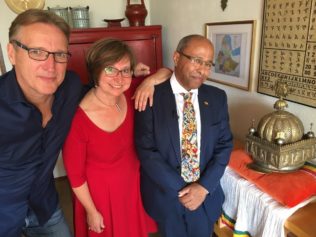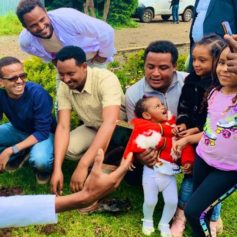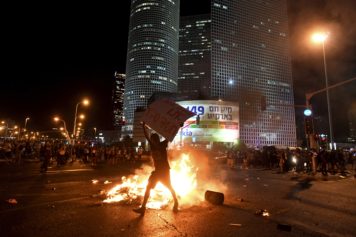
Demonstrators in Oromia, Ethiopia’s largest regional state, have been protesting since Novemeber against the government’s plans to extend the boundaries of the capital Addis Ababa. Protesters say the proposed urban plan, known as Addis Ababa Integrated Master Plan or the “Master Plan”, will displace local farmers through mass evictions.
Addis Ababa is one of the fastest growing populations in the world with a population of 3,384,569 according to the 2007 population census with annual growth rate of 3.8%. In the last 10 years, the capital has steadily encroached on Oromo farmlands. In the last 10-15 years, more than 150,000 Oromo farmers have been evicted from their ancestral lands without adequate notice, compensation and proper relocation.
“Sometimes the informal settlers are given only a few days’ notices before bulldozers arrive on the scene to tear down their shabby houses and lay foundations for new investors,” said Ermias Legesse, a high profile government defector.
The government rejected the accusation, claiming that the plan is intended only to facilitate the development of infrastructure such as transportation, utilities and recreation centers to remote areas.
Protesters say the plan threatens the sovereignty of Oromo communities. According to the Ethiopian constitution, Oromia is one of the nine politically autonomous regional states in the country. However, the constitution also says that the farmers do not own their land, the government does.
Land is a common property of the Nations, Nationalities and Peoples of Ethiopia and shall not be subject to sale or to other means of exchange.
Since November, university students clashed with anti-riot police resulting in between over 100 deaths according to human rights and activist groups. Over 4,000 have been arrested, including journalists, bloggers and Oromo singer Hawi Tezera. Although the government has initiated a media blackout in the capital, protestors have been able to send videos, photos and messages through social media of the state violence.
#Ethiopia govt killed 50+ civilians as student-led protests agnst impending displacement of farmers. #OromoProtests pic.twitter.com/Wxhez8Fpfa
— Live From Mogadishu (@Daudoo) December 14, 2015
Students of Haramaya University, Harar Campus stage a mourning protest today Dec 9, 2015. # OromoProtests # Ethiopia pic.twitter.com/bTqdl1CCG1
— Mahlet (@faantish2) December 9, 2015
Protesters and human right activists have used the hashtag #OromoProtests to combat the media silence.
The sad state of press in #Ethiopia , no media can give us information about #OromoProtests, social media is the only existing source.
— Soli ( ሶሊ) (@Soli_GM) December 7, 2015
stats on the #OromoProtests: – 140 have been killed – 1500+ injured – 4500+ arrested – 800+ disappeared
— ☭ blige ☭ (@THECAROLDANVERS) January 8, 2016
#oromoprotests Haramaya university continue protest against regimes killing,kidnapping,torturing,@hrw @CNN pic.twitter.com/XeSelVsj4p
— Biqilla Biyyaa (@BiqillaB) January 9, 2016
The government continues its crack down on students.
Right now Police is raiding mada walabu University campus dormitory and beating students https://t.co/aW2QivVfcD #OromoProtests #Ethiopia
— Ethiopian Press (@abenezer_a) January 9, 2016


